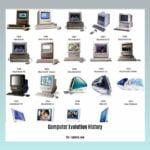Get ready to embark on an exciting adventure as we journey through the history of computers in our article, “Step Back in Time: A Journey Through the History of Computers for Primary 2.” In this fascinating exploration, we’ll discover how computers evolved from simple calculating machines to the amazing devices we use today. Join us as we uncover the secrets of these incredible machines and learn about the brilliant minds that brought them to life.
Key Takeaways:
The abacus, a simple calculator, was the first computer, tracing back over 2,500 years.
Charles Babbage invented the Difference Engine, the first mechanical calculator, in the early 1800s.
The ENIAC and UNIVAC, the first electronic computers, emerged in the 1940s.
The microprocessor, invented in the 1970s, led to the development of personal computers.
Computers are used in every aspect of modern life, from communication and entertainment to business and industry.
History of Computers for Primary 2
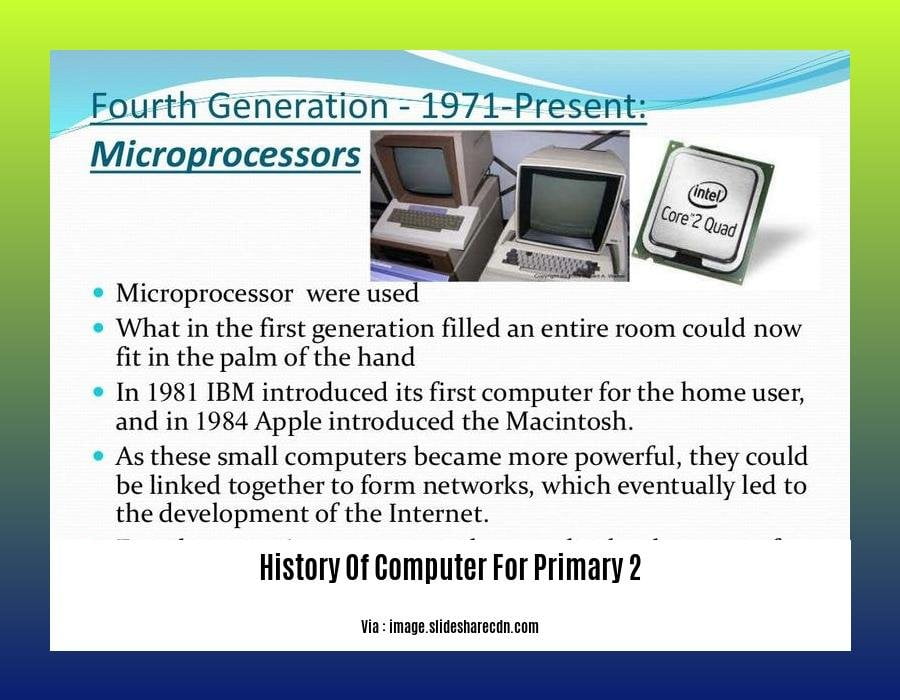
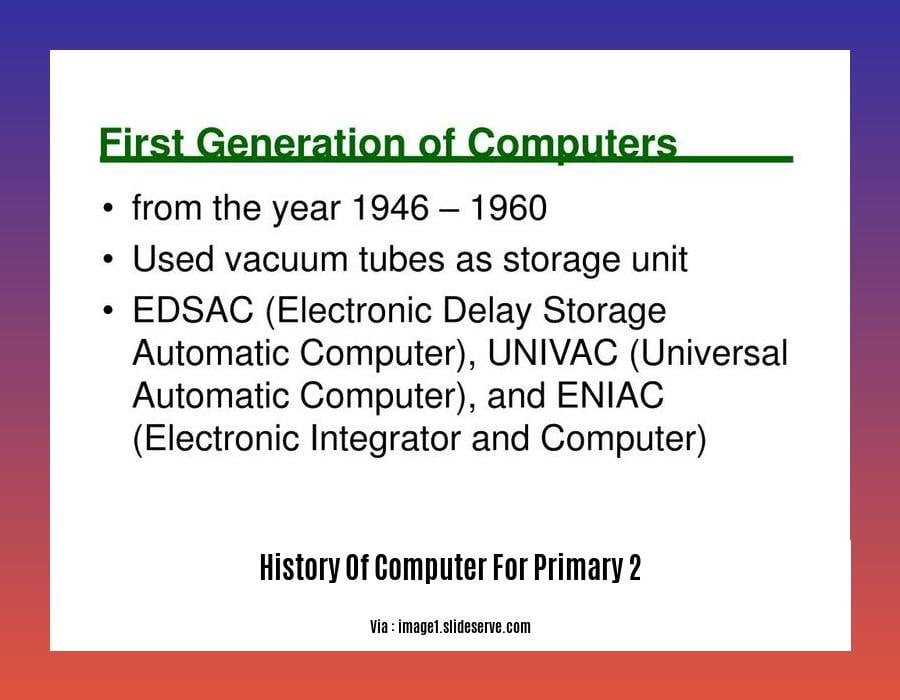
Hello, curious young minds! Today, we’ll journey through time to explore the fascinating history of computers. You might wonder how they came to be, right? Let’s dive in!
The Abacus: The First Calculator
Imagine a tool with beads that slide on strings to count. Meet the abacus, a marvelous invention that existed over 2,500 years ago! It was the first calculator that helped people add and subtract numbers effortlessly.
Mechanical Marvels: Making Calculations Easier
In the 19th century, Charles Babbage created the Difference Engine. This incredible machine could perform complex mathematical calculations automatically – a breakthrough in computing!
Electronic Computers: A New Era Begins
In the 1940s, the world witnessed the birth of electronic computers. Machines like ENIAC and UNIVAC were gigantic but could solve complex problems in seconds, marking a new era of computation.
Microprocessors: Paving the Way for Personal Computers
The 1970s brought forth the groundbreaking microprocessor, which made computers smaller, cheaper, and more accessible. These tiny chips gave rise to personal computers, which would change the world forever.
Computers Today: Everywhere and Essential
Today, computers are an integral part of our lives. We use them to chat with friends, play games, learn new things, and even control machines! They’ve revolutionized the way we work, communicate, and play.
Fun Fact!
Did you know that the first computer mouse was made of wood? It was invented by Douglas Engelbart in 1964 and had three buttons. Pretty cool, huh?
Reflect and Imagine
Imagine a world without computers. Could you do your schoolwork, watch your favorite shows, or play your favorite video games? Computers have truly transformed our lives.
We hope you enjoyed this journey through the history of computers. If you have any questions, don’t hesitate to ask your teachers, parents, or guardians. Keep exploring and learning about the amazing world of technology!
To explore the fascinating journey of computing from the rudimentary abacus to the cutting-edge smartphone, embark on a historical expedition by clicking here.
If you prefer to delve into the captivating history of computers in the beautiful Tamil language, embark on an immersive linguistic experience by clicking here.
For a comprehensive overview of the history of computing, encompassing the foundational concepts and pivotal milestones that have shaped the digital landscape, explore the comprehensive guide by clicking here.
History of Computers Lesson Note for Primary 2
Hello, Class 2! Today we’re going to travel back in time to explore the fascinating journey of computers. We’ll discover how they evolved from simple counting tools to the incredible machines we use today. Are you ready?
In the Beginning…
- Imagine a world without computers. How would we play games, do our homework, or even watch cartoons? That world existed not too long ago!
- The earliest computers were not at all like the ones we have now. They were huge, filled a whole room, and could only do simple calculations.
- Charles Babbage is known as the ‘Father of Computers’ because he designed the first mechanical computer called the Analytical Engine in the 1800s. It’s hard to believe, but this machine could do addition, subtraction, and even multiplication!
- Many years later, in the 1940s, the first electronic computer was born. It was called ENIAC, and it was so big, it weighed several tons! But hey, it could do calculations a thousand times faster than the Analytical Engine.
The Computer Revolution
- Then came the 1970s, and everything changed! The microprocessor was invented, and it was a game-changer. It made computers smaller, faster, and cheaper, which meant they could fit on our desks and in our homes.
- In the 1980s, the personal computer, or PC, took the world by storm. These computers were still quite expensive, but they were much more powerful than the early ones, and they could do all sorts of amazing things, like playing games, word processing, and even surfing the internet.
The Modern Age
- From the 1980s to today, computers have become an essential part of our lives. Almost everyone has a computer, either at home, school, or work. We use them to communicate, learn, shop, play games, and so much more.
- Computers have also changed the way we work. Many jobs require computer skills, and computers have made it possible to do many tasks more efficiently.
The Future of Computers
- Who knows what the future holds for computers? They’re already incredibly powerful, but they’re only going to get better.
- We can expect to see even smaller, faster, and more intelligent computers in the years to come. They might even become so advanced that they can think for themselves!
Key Takeaways:
The history of computers is a journey from simple calculators to powerful machines that can do amazing things.
The invention of the microprocessor in the 1970s led to the development of personal computers that could fit on our desks.
Today, computers are used in almost every aspect of our lives and work.
The future of computers promises even more powerful and intelligent machines.
Sources:
History of Computers – Britannica
The History of Computers – Computer Hope
FAQ
Q1: When was the abacus invented?
A1: The abacus, an early calculator made of beads and strings, has a history that dates back more than 2,500 years.
Q2: Who invented the first mechanical calculator?
A2: Charles Babbage, a renowned inventor, created the first mechanical calculator known as the Difference Engine in the early 19th century.
Q3: What were the first electronic computers called?
A3: The first electronic computers, developed in the 1940s, were named ENIAC and UNIVAC.
Q4: When were microprocessors invented?
A4: The invention of the microprocessor in the 1970s paved the way for the development of personal computers.
Q5: How are computers used today?
A5: Computers are an integral part of modern life, used in various fields such as communication, entertainment, business, and industry.
- Unlock 6000+ words beginning with he: A comprehensive analysis - April 20, 2025
- Mastering -al Words: A Complete Guide - April 20, 2025
- Master Scrabble: High-Scoring BAR Words Now - April 20, 2025
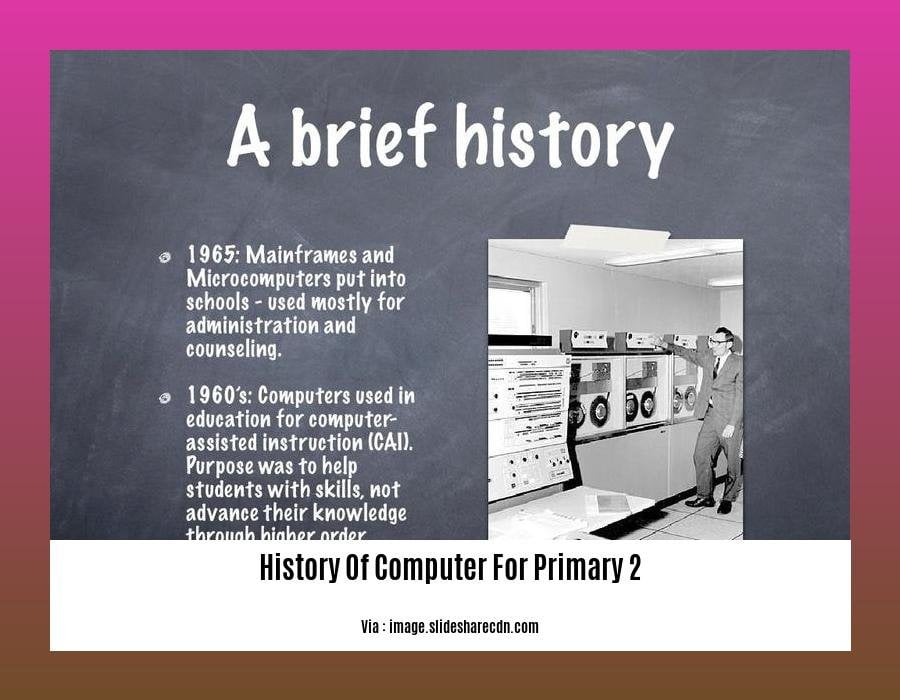
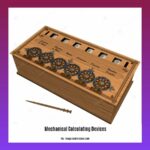
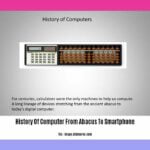
![A Journey Through the History of Computing: From Its Humble Origins to Modern Innovations [history of computing ss1] history-of-computing-ss1_2](https://www.lolaapp.com/wp-content/uploads/2023/12/history-of-computing-ss1_2-150x150.jpg)


